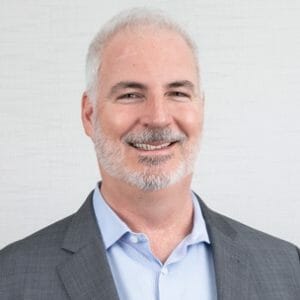
The COVID-19 pandemic continues to earn the country’s attention, and rightfully so. New waves of outbreaks and new variants are likely to be a fact of life for the foreseeable future. Without a doubt, the country must confront the challenges of the current pandemic.
However, we shouldn’t let that effort blind us to the next pandemic, one that is already underway. We will be dealing with the mental health consequences of COVID-19 for years – and we can’t let a return to “normal” mean a return to the pre-pandemic approach to mental health.
Throughout the COVID-19 pandemic and the resulting economic recession, people around the world have experienced an immense, collective trauma. The idea of going back to normal has also created anxiety as many people navigate their return to work, busier schedules, and expectations from others.
Four in ten adults in the U.S. now report symptoms of anxiety or depression, up from one in 10 before COVID-19 struck. The National Institute of Mental Health reported that rates of anxiety or depression, substance abuse, stress-related symptoms and thoughts of suicide during the pandemic were twice as high as the expected rate before the pandemic.
The lasting effects of mental distress do not stop once a crisis is behind us. The 9/11 terrorist attacks led to substantially higher rates of post-traumatic stress disorder (PTSD), anxiety disorders and substance abuse. One study found that problem drinking and alcoholism were connected to psychological trauma up to four years after 9/11. Five to six years after 9/11, more than 21% of people enrolled in the World Trade Center Health Registry reported new PTSD symptoms. The lessons from that national trauma are clear: the COVID-19 mental health pandemic is just beginning.
But just as the pandemic has created a developing surge in mental health issues, it has also raised awareness of mental health needs and the services available to help. More and more people are now understanding the importance of seeking help and are aware they don’t have to fight these battles alone.
Mental health stigma is one of the most significant barriers to seeking treatment, but the universal threat to our emotional well-being during the COVID-19 pandemic has dramatically reduced that stigma.
Almost 90% of American adults now acknowledge that mental health illness requires appropriate treatment, but many struggle with what kind of care to seek. With more than 700 clinicians across the country, CHE works closely with patients through a trauma-informed care model. This model identifies the root of mental health concerns as well as the best path forward for each individual patient.
One of the most effective solutions to access behavioral health care is via telemedicine. We expanded coverage for patients with a variety of telehealth solutions, opening another path to care. This required support from institutional partners, such as Altamont Capital Partners, who helped us adapt to the new challenges of the pandemic and provide better more accessible care to those who needed it most.
Many of our clients have shared positive feedback on their journey to a better state of emotional well-being through collaborative engagement with a provider. Regardless of where patients seek mental health care, it’s critical to work with a provider who will engage on an individual level.
As we work our way back to “normal,” it’s important that we recognize that “normal” must include expanded access to comprehensive mental health services across the country. We will see the mental health consequences of COVID-19 unfold for years to come, but there are positive signs we are breaking down barriers to care by reducing the stigma around mental health. Let’s make this the beginning of lasting progress on mental health in our country.
Mike Lawler is the President and CEO of CHE Behavioral Health Services.
The opinions expressed in McKnight’s Long-Term Care News guest submissions are the author’s and are not necessarily those of McKnight’s Long-Term Care News or its editors.



